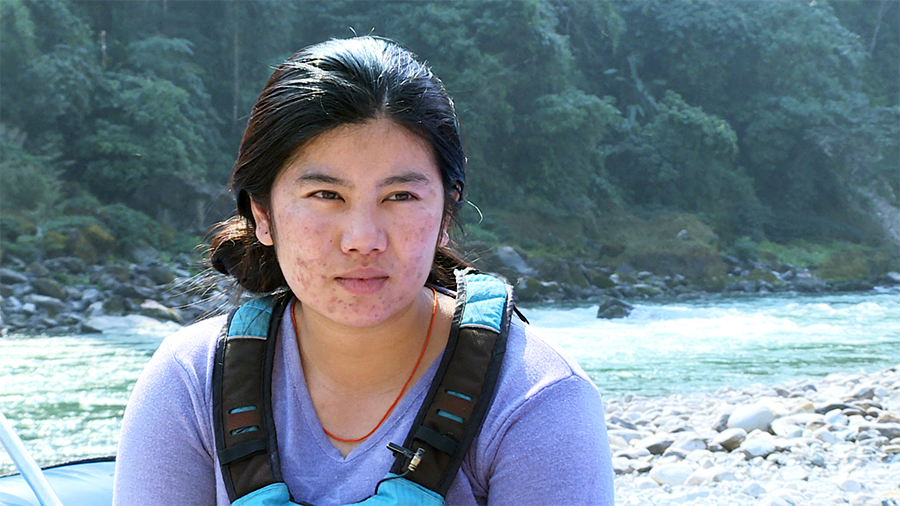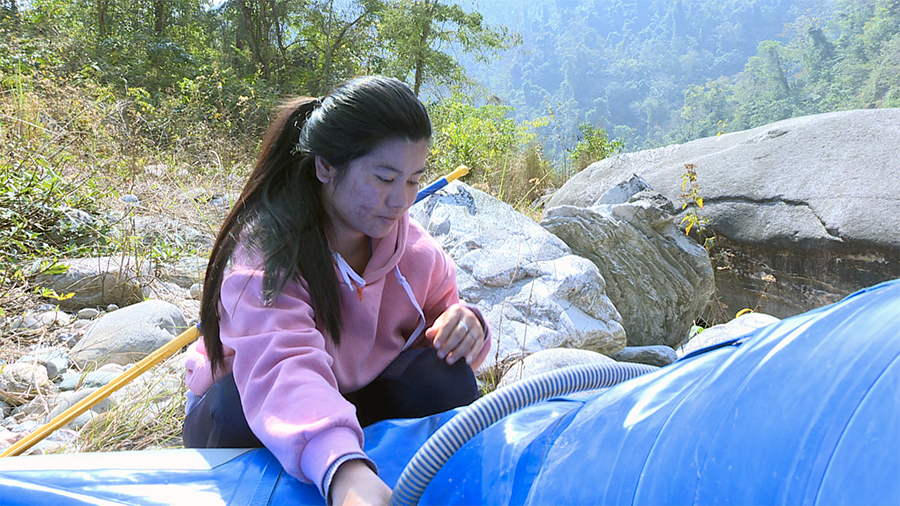
She is zealous. She is fearless. And she is relentless in the pursuit of her life’s calling. She has an insatiable hunger for adventure and she knows her way with the water. She makes a living riding the humongous waves of the country’s largest rivers of Mangdechhu and Drangmechhu. As part of the international women’s day celebrations, we bring you a story of a young woman from Zhemgang who joined other Bhutanese women in breaking stereotypes and taking over roles that were traditionally male-dominant. This story is about Tshering Choki from Panbang, the country’s first female kayaker.
 Every breath beneath this coy face screams of adventure.
Every breath beneath this coy face screams of adventure.
Tshering joins her male colleagues as they prepare to conquer the currents of the Mangdechhu with a group of adventurers.
Tshering is a white-water rescue technician or safety kayaker certified by a rescue training institute based in Nepal.
She also received training in white water rafting and safety kayaking in 2019 from an American trainer. White-water rafting is the sport of riding on a raft over rough and dangerous parts of a fast-flowing river.
The 27-year-old landed this adventurous career after she couldn’t qualify for higher studies upon completing class 12 in 2017.
“Initially, I had some fears when it comes to rafting. But with practice and time, I could overcome that fear. I started rafting in 2018. The male river guides encouraged me to join the group. All the river guides here are men and they said that they need a female river guide. Then, I started the expedition with them from Yangbari. Moreover, the Bhutan Foundation and the Department of Tourism encouraged me to join them.”
Tshering usually earns around Nu 30,000 a month. However, the earning dwindled after the COVID-19 pandemic.
“Before the COVID-19 pandemic, we used to go kayaking but after COVID, I couldn’t go much. It is a good career option to sustain livelihood if we are alone. But it is a little difficult to rely on when we have a family to look after. Our income depends on the number of guests we receive and we earn only when we can go rafting.”
Tshering says so long as there is a will, there is nothing that a woman can’t do.
“I don’t see it as difficult as people think it is. We can do just like the men. It’s about whether you want to do it or not. If we can work, we can earn a living from this profession.”
Tshering says although she is the first female kayaker in the country, she will definitely not be the last. She has trained a woman from her community in basic kayak skills and wants to impart her skills to other women as well.
And it doesn’t end here. As she and her colleagues await more tourists to visit them, Tshering is hopeful of receiving more training and continuing riding more adventurous waves in the coming years.
This story is supported by the GEF-UNDP Ecotourism Project of the Department of Tourism.
Tshering Zam/Phub Gyem










